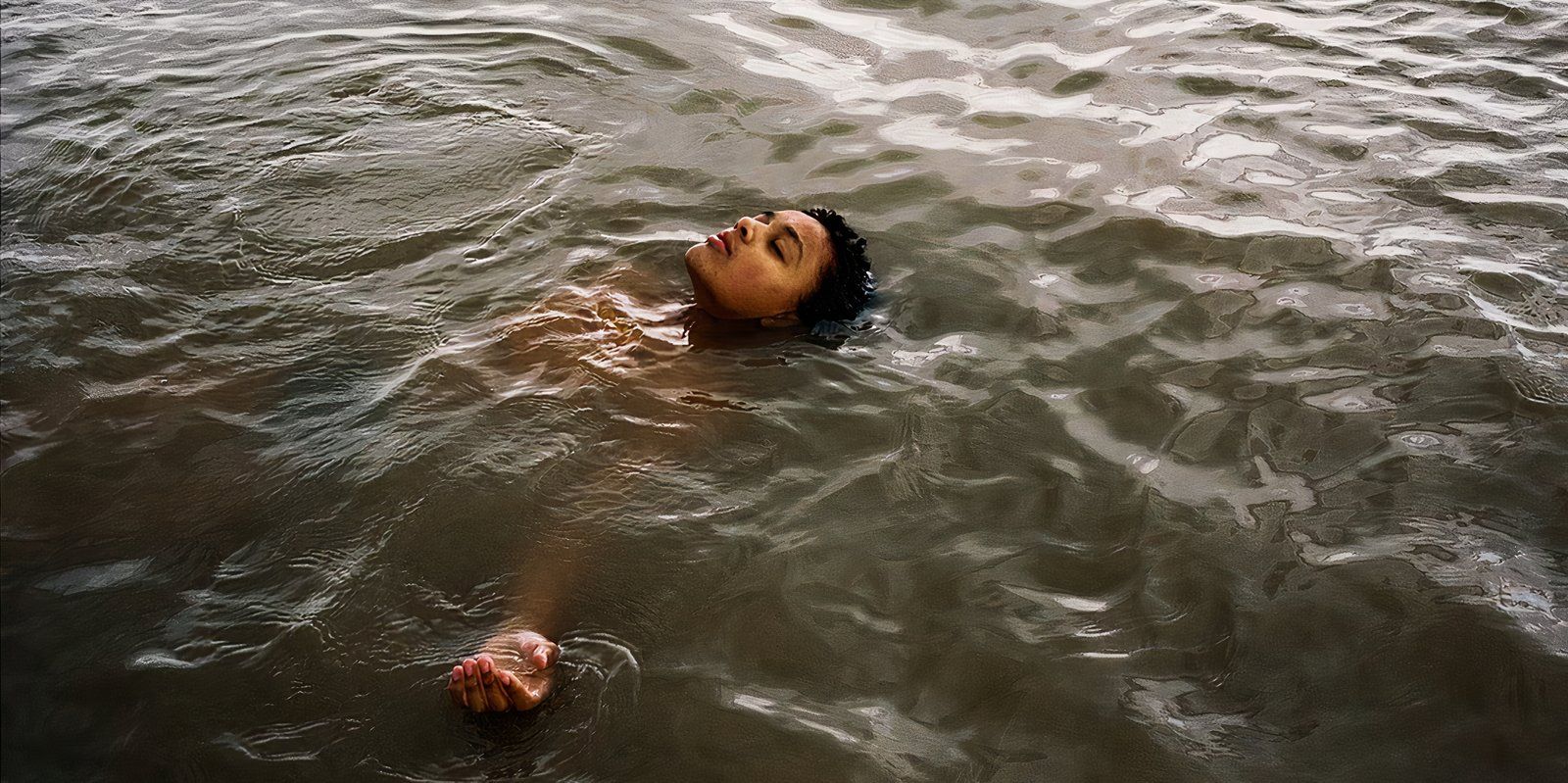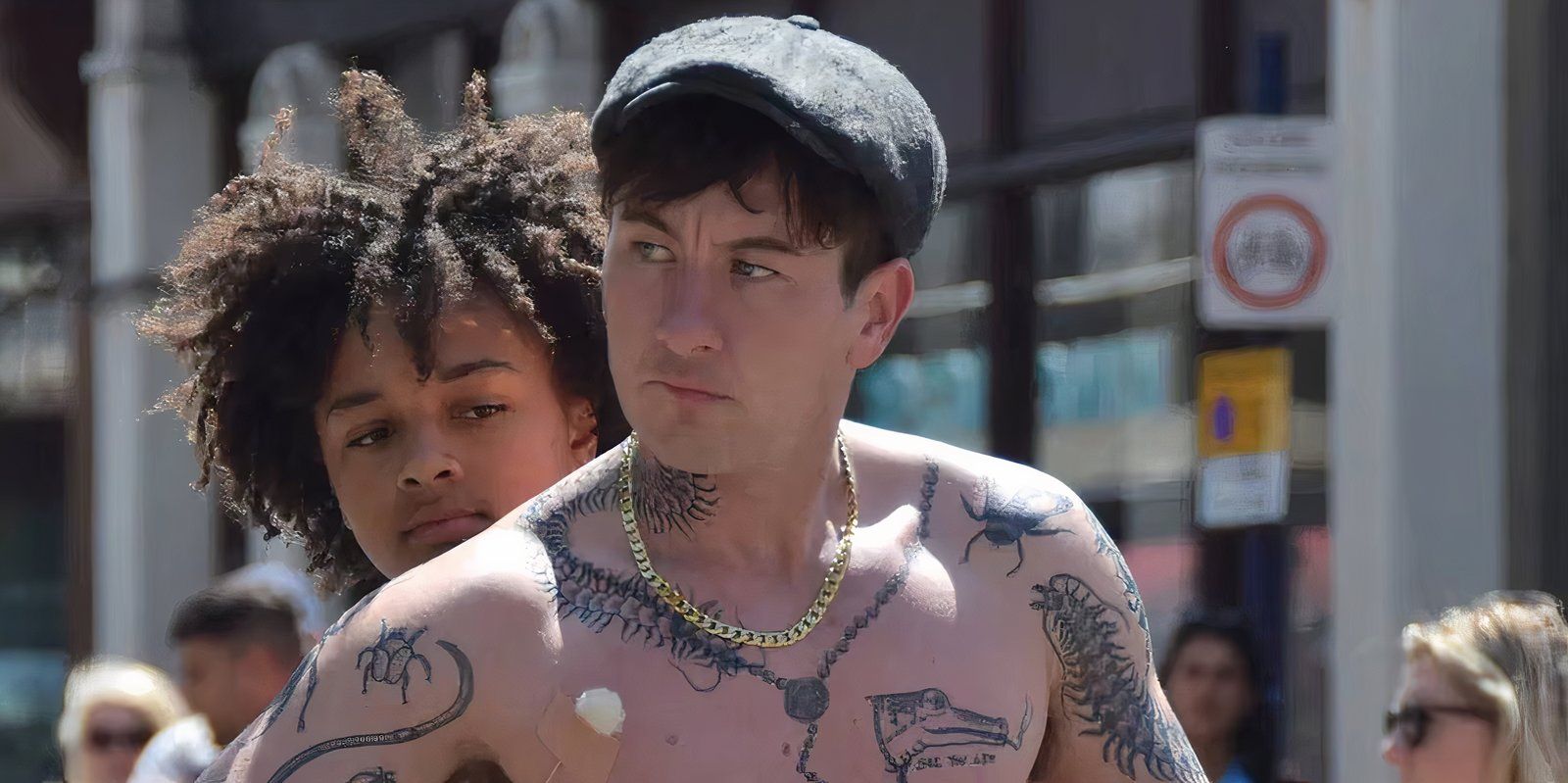
British filmmaker Andrea Arnold returned to the Cannes Film Festival to present her latest feature, Bird
. A harrowing narrative that contemplates the transition from childhood to womanhood, Arnold uses magical realism to capture pre-teen angst with a strong desire for existential freedom. With three Cannes Jury Awards already to her name, the director aimed to delve deep into the chaos of life when violence and uncertainty are at the forefront. Unfortunately, the attempt to dissect real-world concerns from a pre-teen perspective is clouded by poor directional choices.
Bird is an authentic story of pre-teen angst when positive influences are limited
The story follows Bailey (Nykiya Adams), an intelligent but easily influenced 12-year-old girl who lives with her father Bug (Barry Keoghan) and brother Hunter (Jason Buda) in Kent. Navigating the world has been a challenge for Bailey, as her main influence is a father whose new venture involves selling a hallucinogen extracted from the slime of an imported frog. Her mother, Peyton (Jasmine Jobson), is now in a violent relationship with another man named Skate (James Nelson-Joyce), whose meter is always at an all-time high. Their “friends” consist of local gang members and self-appointed vigilantes who incite violence in families to protect children.
With such a troubled childhood, it's easy to see why any sudden interruption would cause Bailey to snap. When Bug confirms that he is marrying Kayleigh (Frankie Box), his girlfriend of three months, Bailey is furious and goes to sleep in the field. After waking up, she meets Bird (Franz Rogowski), a reserved stranger whose compassion for Bailey's circumstances manifests itself in his selfless acts. Initially, it appears that Bird is a figment of Bailey's imagination, an invention designed to reimagine her life with freedom. But it becomes clear that he is real, and Arnold's exploitation of Bailey and Bird's friendship becomes the film's undoing.
The script makes crucial mistakes in presenting Bird as a problem-solving companion
Arnold's narrative initially captures Bird as a harmless do-gooder who just needs help finding his family. If that's the case, I have to question why someone in the film isn't perplexed enough to ask why this strange man would be seeking help from a 12-year-old girl, at least enough to then do something about it. On the other hand, if he is as innocent as the film presents him, why would Arnold capture him naked on rooftops where Bailey can clearly see him? Either way, it's uncomfortable, especially considering Bailey's vulnerable mental state.
Arnold's exploration of Bailey and Bird's friendship becomes the film's undoing.
However Bird adequately captures the world of pre-teen angst, I have to question Arnold's use of magical realism to solve the film's inherent problems and Bailey's problems. Adding it seems like an easy way out; capturing the unresolved reality would have been more genuine. After all, life is complex and unfair like that. That's why Bird is ultimately a disappointment. Instead of a narrative focused on examining the mind and actions of a neglected child, the film opts for a light-hearted ending as a last-ditch attempt to salvage the problematic and superficial attempts at resolution.
For what it's worth, Bird is well acted and includes an impressive performance from Adams. His ability to act with emotion and physical anger is impressive. It's also great to see Keoghan take on a role unfamiliar to many of his previous choices, though it still feels limited here. This is actually a problem with the script, as the film plays from Bailey's perspective. Perhaps her limited interactions with the other characters further represent her isolation from her terrible reality, even though she is suffering from the effects of it.
Instead of a narrative focused on examining the mind and actions of a neglected child, the film opts for a light-hearted ending as a last-ditch attempt to salvage the problematic and superficial attempts at resolution.
I wouldn't go so far as to say that Bird It's not worth watching. Indeed, the director's ability to capture both intimate and grand moments through her lens speaks to her dedication to heartfelt storytelling. Unfortunately, this work contains many decision flaws, resulting in a film that leaves more questions than reasonable answers. Even after the use of magical realism robs the story of some of its responsibility, it ends up functioning as a superficial examination of childhood trauma despite the fact that a deeper narrative is within reach. Bailey's story deserved better.
Bird premiered at the 2024 Cannes Film Festival and is now showing in theaters. The film is 119 minutes long and is rated R for language, some violent content and drug-related material.
Bird follows 12-year-old Bailey, who lives with her single father Bug and brother Hunter in North Kent. Because her father pays little attention to her, Bailey, on the cusp of adolescence, seeks adventure and connection beyond her challenging home life.
- Nykiya Adams gives a great debut performance.
- Arnold makes some problematic directional choices.
- The film's perspective is limiting, as it only focuses on Bailey's point of view.
- The use of magical realism gets in the way of good storytelling.
